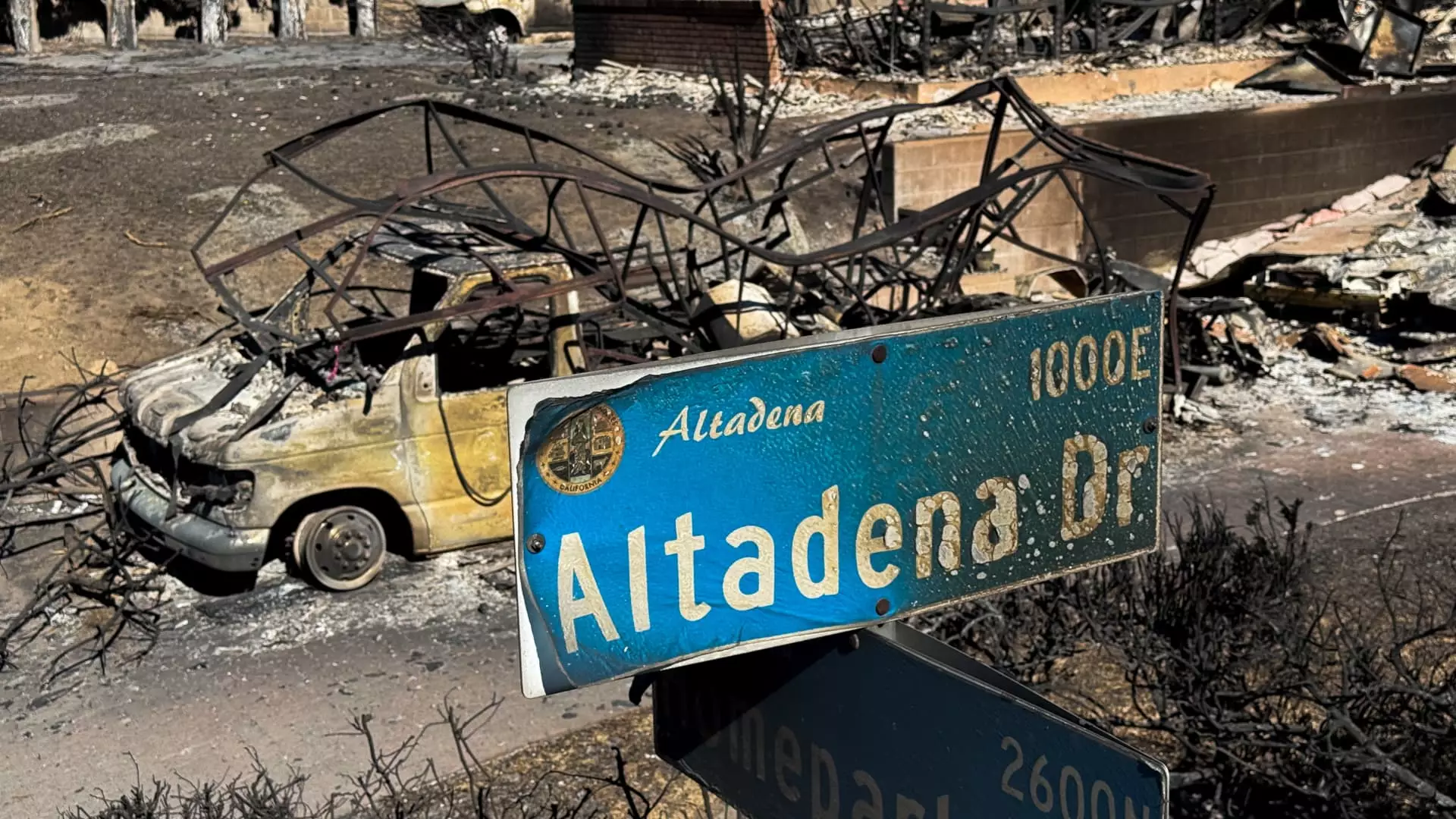As Los Angeles grapples with the devastating impact of rampant wildfires, the consequences extend beyond immediate destruction to potentially challenge the financial stability of local insurance companies. Recent analysis from major financial institutions warns that the extensive strain on insurers exposed to the California homeowners market could see earnings plummet as much as 20%. The escalating situation has prompted firms like Goldman Sachs and Wells Fargo to revise their initial assessments of insured losses, now predicting staggering claims that could total around $30 billion for the insurance sector.
Historically, the financial toll of wildfires in California has been immense. For context, the infamous 2018 Camp Fire resulted in insured losses of $12.5 billion, solidifying its status as the costliest fire in U.S history. However, with current fires wreaking havoc in densely populated areas where property values are significantly higher, the latest blazes may eclipse previous records. The more extensive geographical and financial impact of these current wildfires emphasizes a grim forecast for insurers.
Among the five active blazes, the Palisades Fire is noteworthy, having scorched over 17,000 acres and left more than 1,000 structures in ruins. The Pacific Palisades area, known for its affluence with average home prices around $3.5 million, poses unique challenges for insurance providers. High-net-worth insurers, in particular, are likely to feel the brunt of the losses, as detailed research from Bank of America illustrates.
Companies such as Chubb and Cincinnati Financial are singled out as markedly vulnerable to the financial fallout, with forecasts projecting a dramatic decline in earnings per share (EPS). The implications of these fires are not only a loss of property but the potential for widespread financial instability within the insurance landscape.
The immediate response from the stock market reflects the anticipated distress. Share prices for Chubb have dropped by 5.1%, with Cincinnati Financial witnessing a 4.6% decline. Analysts predict Cincinnati could see a 20% decline in EPS by 2025 due to escalating insurance payouts. Similar expectations are being echoed for Chubb, Everest, and Travelers, as these companies could also face sizable EPS reductions in the wake of this disaster.
Conversely, the overall sentiment for national insurance providers such as Progressive suggests relative insulation from these wildfires—indicating a possible reassessment of market positioning as the economic landscape evolves. The distinction between high-net-worth insurers and their middle-market counterparts becomes increasingly relevant in dissecting the industry’s response to natural disasters like these wildfires.
Beyond the fiscal implications lies a darker narrative – the human cost of these wildfires. Unfortunately, reports state that at least 24 people have lost their lives as flames have swept through communities, with the death toll expected to rise further as rescue teams continue their searches through ravaged neighborhoods. This human factor cannot be overlooked, as it adds a layer of complexity to market responses and ethical considerations for insurers.
Utilizing data from Oppenheimer, we find a concentrated group of public insurance carriers controlling roughly 20% of the homeowners market in California. For instance, Mercury General, with a market share of 6.5%, stands to feel significant repercussions from the fires. Such widespread losses threaten not only economic stability for these firms but also the livelihood and homes of countless California residents.
In light of these challenges, discussions have emerged about the necessity of instituting robust mitigation and preparedness strategies. For insurance companies, this could involve diversifying their portfolios to hedge against regional disasters or investing in technologies that enhance risk assessment and emergency management.
Moreover, collaboration between policymakers and insurance providers is essential. Enhanced zoning laws, community engagement, and sustainable development tactics may mitigate future losses. With the current fires exposing underlying market vulnerabilities, there is an urgency for systemic changes that reinforce both community resilience and insurer accountability.
As Los Angeles faces the dual challenges of human tragedy and economic repercussions from wildfires, the imperative for reform and readiness has never been clearer. The ramifications of these blazes extend well beyond immediate losses, sculpting the future terrain of the insurance landscape while reminding us all of the need for proactive measures in an era of escalating natural disasters.

